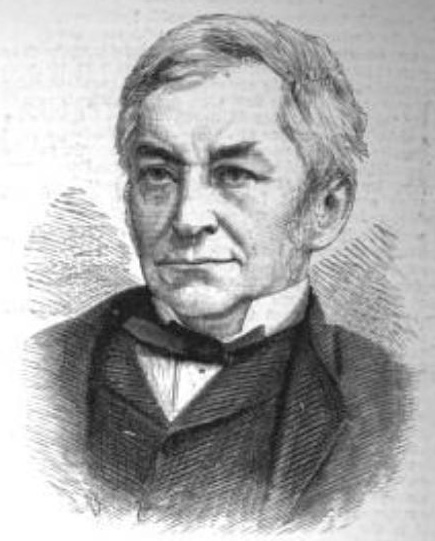| Profile | Major Works | Resources |
Bonamy Price, 1807-1888.

![]()
English historicist economist and Drummond professor of political economy at Oxford from 1868 to 1888.
Born in Guernsey and educated privately at High Wyncombe. Bonamy Price went on to enroll at Worcester College, Oxford in 1825, where he came under the influence of Thomas Arnold, and obtained a double first in 1829. At Arnold's invitation, Bonamy Price went on to become a Rugby schoolmaster in 1830, where he was well-regarded as a teacher. Bonamy Price resigned in 1850, and moved to London to become a sometime businessman and writer. Price was particularly interested in currency questions, a "free banking" advocate who promoted security-backed, rather than gold-backed, bank-issued currency.
Seeking a platform for his economic views, in 1862, Price applied for the Drummond Professorship at Oxford, but lost to J.E. Thorold Rogers. He applied again in 1868. It was a fortuitous moment, as Oxford was then immersed in a conflict over the renewal of Thorold Rogers's appointment to the Drummond chair. In 1867, Oxford had repealed the old clause that required a two-year interval before a candidate could be considered for re-appointment. Rogers applied for a renewal, but his personal and radical political proclivities had alienated a section of the Oxford electors. They threw their weight behind the old Rugby schoolmaster and Bonamy Price won the election. As it turns out, Bonamy Price was the first Drummond Professor to benefit from the repeal of the clause, being re-appointed in 1873, 1878 and 1883. He remained at Oxford until the eve of his death in January 1888.
An English historicist by instinct, and a severe critic of Ricardo and especially Mill, Bonamy Price is perhaps most famous for his pronouncements against Ricardian economics, indeed against all economic theory whatsoever. "So wild indeed has been this passion for scientific treatment,", Price lamented, "that Political Economy has been translated into mathematical formulas", (1878: p.3). Economics was not a science, he asserted, but exalted common sense.
"[Political Economy] is the application of common sense to familiar processes. It explains their nature and manner of working....But there is no strict sense in all of this, no deduction, step by step, from a few first principles, nor any construction of economic laws by induction. I can find no true economical law in Political Economy....What are called economic laws by most writers are mere tendencies. They profess no absolute and uniform character." (Price, 1878: p.15-16)
Although a free trader in principle, Bonamy Price discarded Ricardian tenets like the theory of rent and the Wages Fund doctrine, and endorsed the formation of trade unions. Bonamy Price is credited by Hayek as one of the developers of the "over-consumption" theory of the business cycle. (e.g. 1879, 1880). In Price's view, over-consumption induces excessive over-production on false expectations of continued, and leads to industrial depressions.
A broad church Anglican, Bonamy Price was a leading opponent of the "Oxford movement" of John H. Newman & co. Bonamy Price was also a long time advocate of university reform, seeking to bring Oxford closer to the modern German model, with emphasis on professorial teaching and research, and reducing the role of college tutors. Although defensive of the Greek and Latin Classics, Price nonetheless sought to contain their role. Unlike at Rugby, Bonamy Price's reputation as a teacher was not particularly great at Oxford, his modest scholarship and his eclecticism failed to inspire a school of thought around himself. Even his attachment to Historicism was intuitive, rather than a deeply researched alternative. Bonamy Price's hostility to economic theory - coupled with his long-tenure as economist-in-chief - in no small way contributed to the general failure of Oxford to develop an alternative to the Marshallian orthodoxy then beginning to emanate from Cambridge.
|
Major Works of Bonamy Price
|
|
HET
|
|
Resources on Bonamy Price
|
All rights reserved, Gonšalo L. Fonseca
